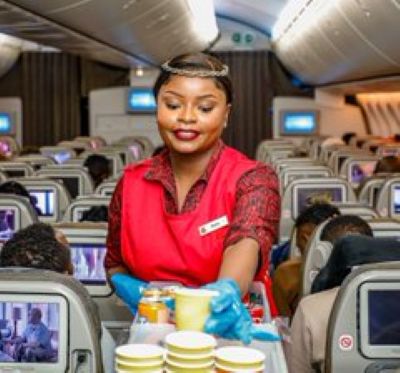Kenya Airways has made history by operating Africa’s first intra-continental flight using 50% Sustainable Aviation Fuel (SAF) attributes, marking a major step in reducing the carbon footprint of air travel across the continent.
The milestone flight, from Nairobi to Cape Town, was conducted under international standards set by the International Air Transport Association (IATA) and the Carbon Offsetting and Reduction Scheme for International Aviation (CORSIA).
The SAF attributes are verified through globally recognized certification schemes to ensure traceability and transparency. The fuel—made from Hydroprocessed Esters and Fatty Acids (HEFA) derived from used cooking oil and other waste materials—can cut greenhouse gas emissions by up to 85% compared to conventional jet fuel.
By applying these verified SAF attributes, Kenya Airways achieved a 50% SAF-equivalent operation, a significant step in exploring practical ways to cut aviation emissions.
The flight formed part of the SkyTeam Aviation Challenge 2025 (TAC) under the theme “Impact”, which highlights sustainable innovation in aviation.
During the flight, Kenya Airways showcased several eco-friendly initiatives under four focus areas:
- Inflight Products: Upcycled blanket bags, reusable cutlery, and headset covers.
- Catering: Locally sourced Kenyan coffee and tea, canned beverages, and reusable drink cups.
- Waste Management: Recycling of onboard waste and reusing service items.
- People: Cabin crew engaging passengers on responsible travel practices.
Hellen Mwariri, Chief Strategy and Innovation Officer at Kenya Airways, said the initiative demonstrates what can be achieved through collaboration and innovation.
“This flight shows what can be achieved through collaboration and innovation. It’s a step toward practical solutions that reduce our impact while keeping operations efficient,” she said.
Kenya Airways said it is working with government agencies, local innovators, and international partners such as IATA, SkyTeam, and the African Airlines A


